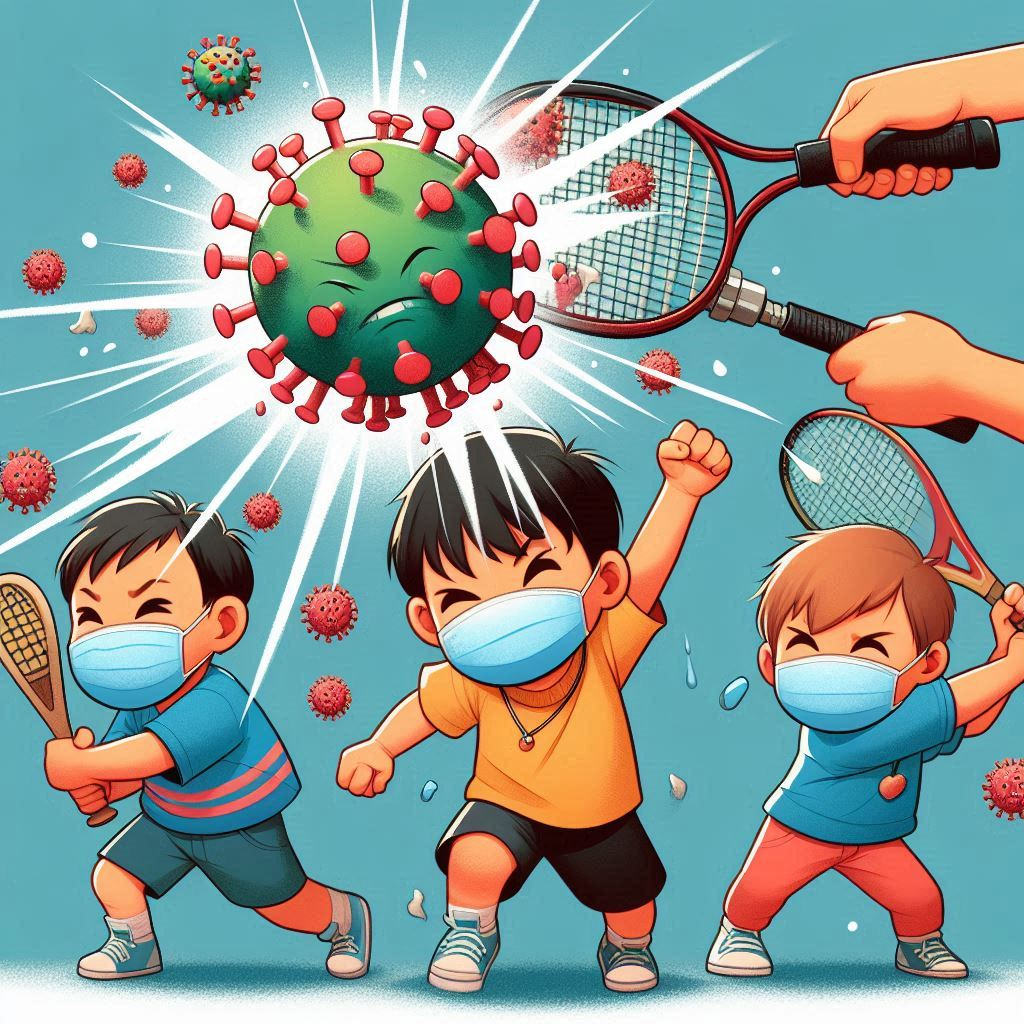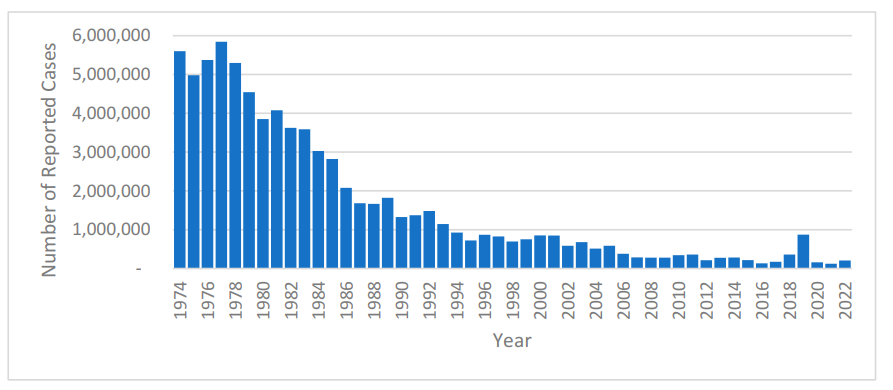
Introduction
Fifty years after the initiation of the Expanded Programme on Immunization in 1974, life-saving vaccines have reformed global healthcare. Among these, the measles-containing vaccine (MCV) stands out for its unparalleled role in reducing child mortality rates, preventing an estimated 57 million deaths worldwide between 2000 and 2022. Despite significant progress, diseases such as measles and rubella continue to pose a threat, particularly in developing countries. The COVID-19 pandemic has further complicated efforts, highlighting the need for renewed focus and coordinated action. In their recent article, Durrheim et al. indicated the current state of measles and rubella worldwide, the challenges faced, and the strategies required to achieve measles and rubella eradication.
The Current State of Measles and Rubella Vaccination
Measles and rubella remain significant public health concerns. In 2021, only 81% of children received their first dose of the measles-containing vaccine (MCV1), the lowest coverage since 2008. This left 25 million children vulnerable to measles. By 2022, MCV1 coverage had increased slightly to 83%, but this was still below the pre-pandemic level of 86%. The result has been large, disruptive outbreaks in many countries, with a global epidemic curve resembling that of 2018 and early 2019.

Measles not only poses immediate threats but also leads to immunosuppression in children, increasing their susceptibility to other infections. This explains a significant portion of childhood deaths post-measles infection. The measles vaccine is highly cost-effective, with data indicating that for every US$ 1 invested in vaccination from 2001 to 2020, US$ 58 were saved in future costs. Modelling shows that measles vaccination can prevent 37% of deaths from 14 key pathogens between 2021 and 2030, saving 18.8 million lives in this decade alone.
Impact of the COVID-19 Pandemic
The COVID-19 pandemic has had a profound impact on measles and rubella eradication efforts. The pandemic led to the closure of country borders, a dramatic decrease in international travel, and the implementation of wide-scale non-pharmaceutical public health measures. These actions significantly obstructed the importation and transmission of measles and rubella viruses. However, the pandemic also disrupted routine immunisation programmes and postponed vaccination campaigns, creating immunity gaps.
The Immunisation Agenda 2030
The Immunisation Agenda 2030 (IA2030) of the World Health Organization (WHO) recognises measles as a tracer of the strength of immunisation programmes. Strategic priority 3 of IA2030 notes that measles cases and outbreaks should identify weaknesses in immunisation programmes and guide programmatic planning. Nevertheless, IA2030 will inevitably fail unless measles and rubella eradication efforts are accelerated. This includes achieving impact goals such as reducing deaths, endorsing elimination targets, and increasing global coverage with the second dose of the measles-containing vaccine (MCV2) to 90%.
The Moral Imperative for Eradication
There is a moral imperative to commit to and achieve measles and rubella eradication. The ongoing disease burden and preventable deaths due to measles are unacceptable. The rule of rescue demands that if we have effective tools, we should make every effort to save lives. The eradication of measles, rubella, and congenital rubella syndrome (CRS) should not remain as a technically possibility but must be achieved to prevent children from facing avoidable childhood mortality and lifelong disabilities. This completion is essential to secure a future where children are not burdened by these preventable health risks.
Conclusion
Measles and rubella eradication represent a moral imperative and a critical public health goal. The global community must act now to close immunity gaps, strengthen immunisation programmes, and commit to the goals of the Immunisation Agenda 2030. By fostering collaboration, securing adequate resources, and engaging diverse stakeholders, we can ensure a future where preventable childhood diseases like measles and rubella are consigned to history. This action will safeguard the health and well-being of generations to come.
